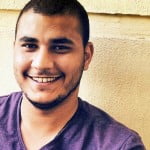
Shruthi Aramandla’s education and her job are geared to New York City’s skyline. She did not want to go back to her native India and start all over again.
Ms. Aramandla, 24, who has a master’s degree from the Tandon School of Engineering at New York University, has been waiting anxiously for the federal government to publish its new rule on a foreign-worker training program so she would know whether she could stay longer — and perhaps one day permanently — in the United States.
The federal government will publish the rule on Friday, saying that international students earning degrees in science, technology, engineering and mathematics fields in the United States will now be eligible to stay for three years of on-the-job training. This is seven months longer than under the 2008 rule it replaces for the STEM Optional Practical Training program, known as OPT. The new rule will take effect on May 10.
Beyond offering graduates more experience in their fields, the extension serves another purpose. “If my work visa gets denied this year, I still have two more opportunities to apply, and I can keep working within the country,” said Ms. Aramandla, who wanted to be an engineer since she was 10, growing up in Chennai, India. She graduated from N.Y.U. in May; under the previous 29-month rule, she would have been able to stay only through October 2017.
Ms. Aramandla will apply in April for a visa, known as an H-1B, for so-called skilled foreign workers. But Congress caps those yearly at 65,000, with an additional 20,000 slots for graduates with advanced degrees like Ms. Aramandla. The government received nearly four times as many applications for those visas as were accepted in last year’s lottery.
Sign up to receive an email
when we publish other stories on education in New York City.
This rule is yet another flash point in the controversy over immigration reform. Industry leaders who say they are desperate for skilled talent and those defending the rights of American workers see the training program’s extension as an end-around to stalled reform. But that is all they agree upon.
“It’s an ongoing assault on American workers,” said John Miano, a lawyer for a technology workers’ union in Washington State, whose lawsuit last summer was what forced the government to vacate the previous rule and create a new one, this time for public comment.
“They are just trying to double down on what they’re doing before,” he said of the government. “‘O.K., you didn’t like 29 months? We’ll make it 36 months.’”
Mr. Miano says his group, the Washington Alliance of Technology Workers, is still arguing the legality of the program in an appeal. The next hearing will be in May at the United States Court of Appeals for the District of Columbia.
The government posted a similar version of the rule in the federal register in October, drawing more than 50,500 comments. (Death threats to President Obama were removed, officials said.) A large number of commenters who said they were foreign students supported the rule. But there were also comments from people who identified themselves as unemployed technology workers or concerned citizens who believed the government “was destroying this country,” and thought that it showed the government was “standing with illegals.”
“I hope you rip it up,” one commenter said.
The new rule states directly that “a STEM OPT student would not replace a full- or part-time, temporary or permanent U.S. worker,” and that the salary offered would “be commensurate” to American workers.
Officials with the Immigration and Customs Enforcement agency said they tried to tighten training programs, mandate oversight of employers and make sure that the students come from accredited universities in an effort to prevent fraud.
“In our mind, it enhances training and puts safeguards in to make sure that if you are an employer that you are not unfairly disadvantaging U.S. workers,” Rachel Canty, deputy director for the agency’s Student and Exchange Visitor Program.
The agency said it would provide help sessions for eligible students, employers and academic institution on its website on Friday.
Ms. Aramandla, who works for Loring Consulting Engineers and designs heating, ventilation and air-conditioning systems for schools in New York, said her training would not be applicable in India, nor would she find the same work environment there; as a woman in India, she feels she would not be as respected as she is in the United States.
Michael DesRochers, the president of Loring, said Ms. Aramandla was an integral employee in his technical work force, which is 7 percent foreign.
“The labor market is tight,” Mr. DesRochers said. “We don’t look at it as the international students are taking away American opportunities. We feel we’re offering to all.”
His company’s work may intersect again with the new rule: Recently, his engineers replaced the ventilation and mechanical systems for the United States Supreme Court.
[SOURCE :-nytimes]



